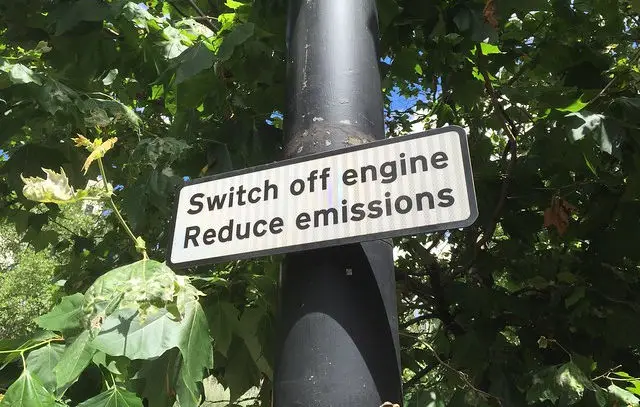Taxis, buses, coaches and heavy goods vehicles could be hit with a charge for driving in Portsmouth city if a clean air zone is brought in.
In a bid to reduce air pollution in the shortest possible time, Portsmouth City Council has drawn up proposals for a zone.
Private cars excluded
It would only apply to commercial vehicles of a certain age – and not private cars or light goods vehicles.
As reported, the government will enforce a zone on Portsea Island if the council fails to prove by October that it can reduce air pollution. Drivers face a daily charge of between £8 and £20.
Ashmore: Improving air quality an urgent matter
Councillor Dave Ashmore, the council’s environment cabinet member, said:
“Improving air quality in the city is an urgent matter, one which has seen the government discussing imposing a charging clean air zone on Portsmouth like they have in other places.
“Our analysis has shown that a class B clean air zone, with additional measures, would achieve the level of compliance needed to ensure the health and well-being of people in our city whilst not impacting the economy of our city.”
Several zones were considered, including one known as class D that would include city residents’ vehicles.
Impact of government imposed class D clean air zone
Cllr Ashmore added,
“Right from the start I have been concerned about the massive economic impact that a government imposed class D clean air zone would have had on residents here.
“Many people just can’t afford to replace their old car. Although the government could still impose a class D zone on our city, we need to continue with the additional measures to improve our air quality, such as the extra trees being planted, improvements for cycling and the anti-engine idling campaign.”
Likely to meet required air quality standards by 2022
The class B zone would mean a daily charge for older, more polluting buses, coaches, taxis, private hire vehicles and heavy good vehicles.
Petrol vehicles that are Euro 4 or newer, and diesel vehicles that are Euro 6 or newer, would not be charged.
The council’s modelling shows a class B zone, with a package of other measures that do not involve charging drivers is likely to meet the required air quality standards in the city by the 2022 deadline.
Plans will be considered on 9th September 2019.
This article is from the BBC’s LDRS (Local Democracy Reporter Service) scheme, which OnTheWight is taking part in. Some alterations and additions may be been made by OnTheWight. Ed
Image: londonmatt under CC BY 2.0





